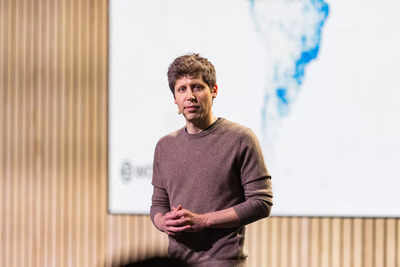ARTICLE AD BOX

OpenAI CEO Sam Altman
revealed he's more concerned about older workers than younger ones as artificial intelligence reshapes the job market, citing age-related differences in adaptability to technological change. "I'm more worried about what it means, not for the 22-year-old, but for the 62-year-old that doesn't want to go retrain or reskill,"
Altman
said, while conversing in "Huge If True" podcast. His comments came while discussing AI's potential to displace workers across industries.The CEO acknowledged that "some classes of jobs will totally go away" and predicted "half of the entry-level white-collar workforce will be replaced by AI" within five years. However, he expressed confidence that younger workers would navigate these changes more successfully.
Young workers better positioned for AI job market shift
Altman called current college graduates the "luckiest kids in all of history," arguing that powerful AI tools like
GPT-5
will enable unprecedented entrepreneurial opportunities. He believes individuals will soon build billion-dollar companies that previously required "teams of hundreds."
"This always happens, and young people are the best at adapting to this," Altman explained, referencing historical patterns of technological disruption and
workforce adaptation
.The OpenAI chief anticipates entirely new career paths emerging, suggesting future graduates might pursue roles that seem unimaginable today, including space exploration missions.
Older workers face greater AI adaptation challenges
Altman's age-focused concern reflects broader workforce trends showing generational divides in technology adoption. His comments suggest that workers approaching retirement may find AI transitions more difficult than digital natives entering the job market. Despite acknowledging the disruptive potential, Altman emphasized that society has proven "quite resilient" to technological shifts throughout history. Altman's tactical advice remains consistent across age groups: "Just using the tools really helps." He urges workers of all ages to integrate AI beyond basic searches, emphasizing that hands-on experience will be crucial for navigating the coming transformation.



.png)
.png)
.png)
















 2 hours ago
2
2 hours ago
2









 English (US) ·
English (US) ·